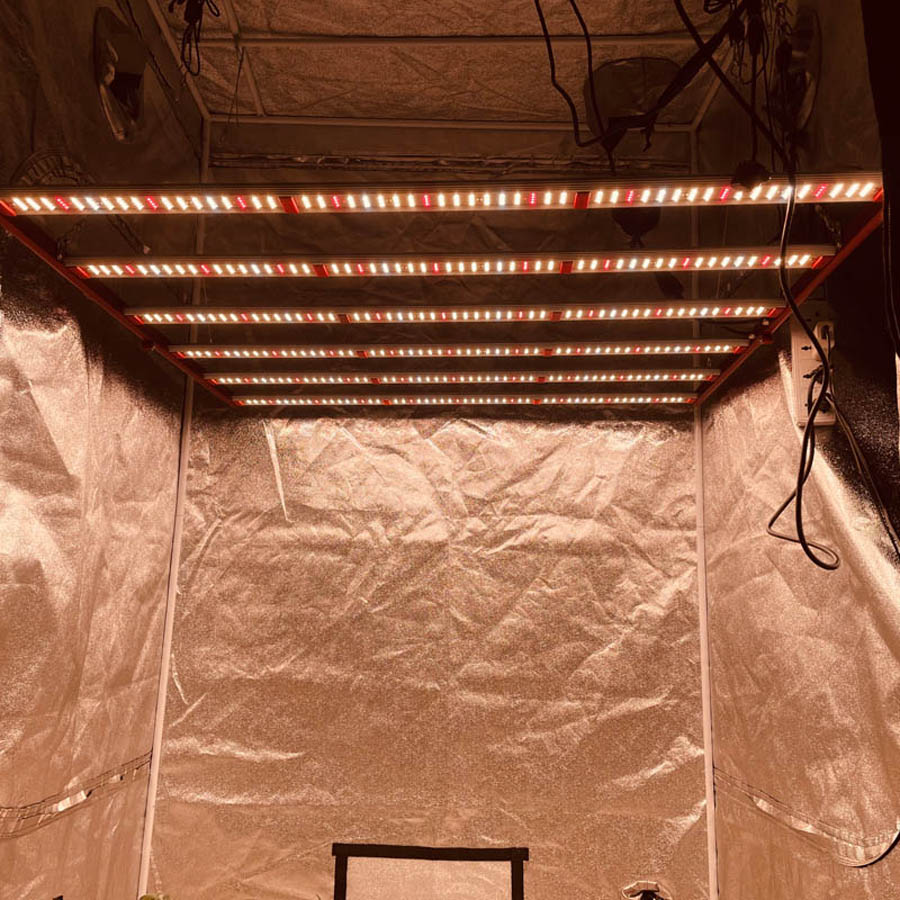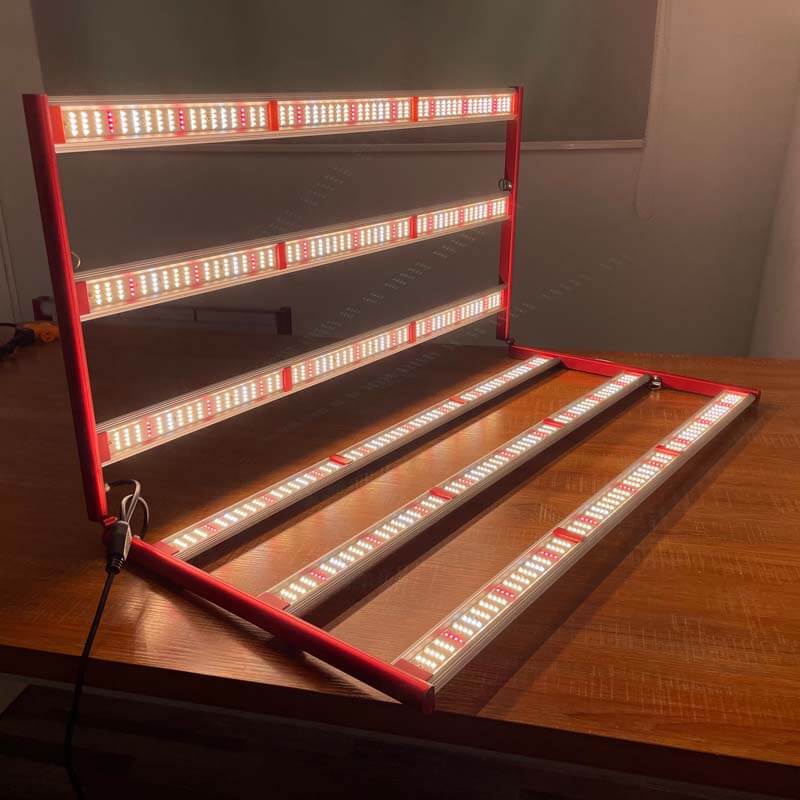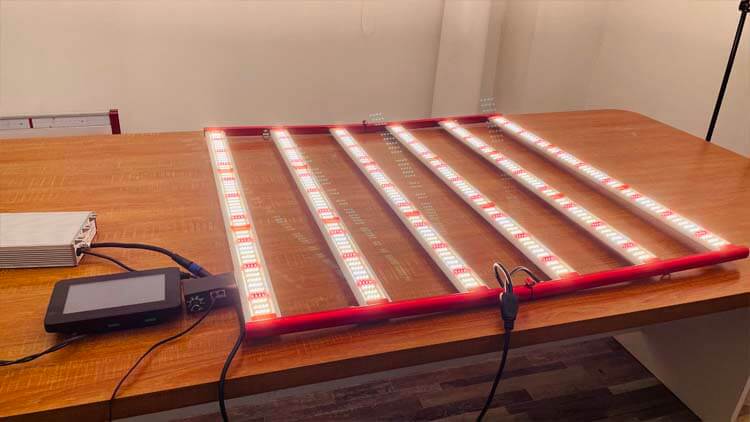In the past two weeks in the United States, I first attended the Buffett annual meeting and the China-US investor cocktail reception, and then visited several cities. In this process, I have often been asked similar questions: the American dream is great, the US stocks are even new highs, the Chinese dream is great, and the economic growth rate is two or three times that of the United States, but why is the Chinese stock market falling?
More precisely, the question is: China's economy is very large and growing rapidly. Why is there no good, strong capital market?
At that time, my answer was nothing more than these angles: First, the US stock market can reflect the fundamentals of the economy, and the Chinese stock market cannot fully reflect the fundamentals of the economy. Tencent and Ali have risen by 30% to 40% this year. From $25 to more than $40, it has risen by more than 60%. Sina and Weibo have all hit new highs, but they are not listed on A-shares. Second, the US stock market is dominated by institutional investors, and the market is relatively rational. "Volunteerization" is still quite serious. It is a big ups and downs. After the skyrocketing, it is a plunge. After the plunge, it will take a long time to calm down the painful heart. It is difficult to quickly launch a round of vigorous love. Third, the performance of Chinese listed companies is unstable. The ability to eat and continue to create value is not strong. For example, the profitability of industrial enterprises has recently improved, 90% of which is based on the PPI (industrial producers' ex-factory price), which has nothing to do with the company's ability to innovate and manage.
“The more you finance, the better, but don’t consider effective returns.â€
These statements should be correct, but further thinking, I realized that the deep-seated problems of China's capital market are related to institutional design, that is, it pays more attention to the interests of financiers, and does not value investors, especially small and medium-sized investors. Return. This kind of "more financing, but not considering effective returns" is exactly the same as the growth pattern of "high investment, high consumption, high leverage" of the entire Chinese economy. Politely, such markets and growth are difficult to sustain; to be serious, these models are essentially looting and waste, the former is the resources that plunder investors, the latter is a waste of economic factors, environmental and social resources.
Let's look at a case. It is the Sinovel wind power listed on January 13, 2011. Its issue price is 90 yuan, and the current stock price is around 1.5 yuan. The name is also changed to "\*ST Ruidian". The company's net profit in 2010 was 2.856 billion yuan, and its earnings in previous years were all high. In the first year of listing, the performance dropped sharply to 599 million yuan. There have also been cases of recognizing revenue and inflating total profits by means of forged documents. In the following 2012 and 2013, the losses were 583 million yuan and 3.764 billion yuan respectively. In 2014, it magically realized a profit of 1 cent per share and lifted the risk warning of delisting. Then in 2015, it lost 4.452 billion yuan, and in 2016 it lost 3.99 billion yuan. After all, Huarui Wind Power, which was known as the “World Wind Power Firstâ€, has accumulated a total loss of more than 9.3 billion yuan raised by IPO. "*ST Ruidian" has more than 300,000 shareholders, and those investors who bought near the issue price have lost only the slag.
Look again at Jiangsu Yabate Technology Co., Ltd., which was recently punished by the CSRC. From 2015 to September 2016, Yabait accumulated a total of 580 million yuan in revenue through fictional overseas engineering projects, fictitious international trade and domestic trade, and the false increase of profits was nearly 260 million yuan, of which the inflated profits in 2015 accounted for The total profit for the period was approximately 73%, and the inflated profit in 2016 accounted for approximately 11% of the total profit for the period. According to the first paragraph of Article 193 of the Securities Law, the CSRC intends to impose a fine of 600,000 yuan on Yabait.
A primary school student knows that cheating in exam cheating will be cancelled. In China's capital market, fiction, fabrication, and collective cheating are commonplace, and a fine of several hundred thousand will be a problem! What is encouraging and guiding? ! How do companies like Huarui Wind Power and Yabait come to the city?
A good market is to protect the market of investors.
"Investment is risky, and you need to be cautious when entering the market." With this slogan that will never stop spreading, even if the capital market is more "swindlers", even if investors "blood flows into the river", it seems to be their own business, who calls you speculation , not long memory?
However, a good capital market must fully protect the rights and interests of small and medium-sized investors, and can not be allowed to do so, just let the market go to education. The reason is simple: they are the ones on the market that are at a disadvantage. At the same time, without their participation, market trading will be quickly deserted, even "three-board."
The same person, as a consumer and as an investor, his market power is different. As a consumer, when he participates in the physical market, especially the consumer goods market, he is basically rational, hoping to buy reliable meat, safe milk powder, and reliable home appliances. If you are not satisfied with a certain product or service and have been hurt, you will not choose it next time, no matter how the company brags. Because of this, the consumer goods market is easy to achieve the survival of the fittest.
But when a person enters the capital market as an investor, the situation is complicated because he often makes a profit by the price difference between the sale and the purchase. He will be influenced by the mood of the whole market, and there will be a "boss of mind" that beats the drums. This kind of "animal spirit" makes his behavior often irrational. For example, he will buy some "themes" that he is completely unfamiliar with. He will chase up and kill. The same stocks, the higher the more they buy, the lower they sell. .
Due to the weak and irrational information of investors in the market, the vocation of a good market is to “suppress the weak†– it wants to suppress the opportunistic behavior of the information superiority while helping small and medium investors get as much and as much as possible. Accurate information makes decisions more rational.
However, for a long time, because the foothold is more biased towards financiers, the Chinese capital market is quite tolerant or selective to ignore the untrue, inaccurate and untimely disclosure of company information. In the A-share market, there are many examples of large shareholders who are proposing to be transferred to the market. In the blink of an eye, they will become losers. In the short-term, the company will take pre-loss. The major shareholders use the related transactions with listed companies to deprive small and medium investors, intermediaries, and public offerings. It is commonplace for companies to conduct "market value management". Some "information" is "digging a pit". The real non-disclosure, the untrustworthy disclosure, but the imposing manner can be free from punishment, not to mention the fact that, like the American Enron fraud incident, it was fined for bankruptcy and the accounting firm was disintegrated.
Howard Max, the founder of Oakwood Capital Management, said in his book "The Most Important Thing in Investment," he once asked a pilot friend how does the pilot feel? The friend said, "I spend most of my time doing nothing, and occasionally I will be scared." Max said that the same is true for investment, most of the time doing nothing, and occasionally timid. What about the Chinese market? Wang Guobin, a famous investor in Shanghai, entered the stock market in 1992. He said that he has been investing in China for so many years. He feels that "most of the time, he is scared and occasionally has nothing to do." There are two reasons. First, the market rules have changed, even in the middle of the night. Second, the company’s “black swan†incident has frequently occurred, and it is not uncommon for listed companies to make fraud.
Professional investors still have "most of the time to be scared", ordinary small and medium-sized investors are hurt more, numb, and most of the time is disheartened.
Wherever there is a predator, anyone can be a predator.
The capital market is a wealth amplifier, which can amplify a piece of money profit into dozens or even hundreds of times market value. In the face of this money-making effect, anyone without a rule of law and seamless supervision may have a plundering mentality.
At the 2010 Boao Forum for Asia, one of the guests on the round table I hosted was the most successful fund manager in the history of the United Kingdom, Anthony Burton of Fidelity. He is an investor with the same name as Graham and Buffett. He has achieved an average annualized rate of return of 19.5% in the 28 years of managing Fidelity's funds. At that time, he had just moved to Hong Kong with confidence. He spent more than 70 million Hong Kong dollars to buy a house in Mid-Levels and started to operate a Fidelity China Special Situations fund for Fidelity. He even thought this It will be the most exciting page in his investment history. But three years later, Bolton suddenly withdrew from the Chinese fund. As of June 18, 2013, Fidelity China Fund's yield was -14.42%.
One of the main reasons for Bolton’s defeat is that he excludes large state-owned enterprises according to the habits developed in the UK, and prefers small and medium-sized private enterprises because “state-owned enterprises do not aim at maximizing shareholder returns. Relative to the private sector. The risk of state-owned enterprises is small, but I don't think that the state-owned enterprises will be the stars in the market in the next few years, so he bought a lot of private consumer and service companies. But I did not expect to hit the mine frequently. Bawang Chinese medicine shampoo was detected to contain carcinogens, and Boshi frog was exposed to suspected financial fraud. Baozi announced that it had “missed†an interest-free loan of approximately RMB 780 million to major shareholders, subsidiaries and related parties, Sunway Education The CEO took the company seal, suspected of asset volatility, and Xi'an Baorun was accused of fraud... Under a series of blows, Bolton finally realized that "many data and information may be untrue, especially some small and medium-sized stocks." He lamented, "The mistake is not in my trading strategy, nor in this immature market, but in putting my strategy in this immature market."
Bolton’s lesson shows that no matter which market has predators, national enterprises and private enterprises may become predators. Relatively speaking, family businesses in the Asian region, including the Chinese family, are even weaker in corporate governance. Their wealth is more powerful, and it is easier to deprive small and medium investors of their interests through connected transactions or fraudulent accounts.
The well-known economists Akerlof and Romer pointed out in the classic paper on "owner plunder" that went through bankruptcy to profit, because the limited liability system gives the company owner the possibility of exploiting creditors, so the owner may deliberately make When a solvable company goes bankrupt, bankruptcy benefits become "a more attractive strategy than maximizing real economic value."
They stressed that "if the company has the incentive to sacrifice the society to make a profit from bankruptcy, rather than go all out to succeed, then the economic shady activity will take the lead. If the poor accounting system, lax supervision and punishment for violations, the owner In order to gain more than the company's value, and then default on the debt, the bankruptcy profit will happen." "Unfortunately, not only the government-guaranteed enterprises will face such a serious incentive distortion. The plunder can be symbiotic Spread to other markets, resulting in an underground economy activity filled with improper incentives.
There has always been a “proportion effect†in China’s capital market. A company’s governance has gone wrong. It’s not a painful change, but a case of another company. “Why can he, I can’t?†The plunder is almost a Collective unconscious.
Professor Qian Yingyi pointed out in 2005 that "avoiding a bad market economy and moving towards a good market economy" pointed out that any market economy is potentially plundered. "The bad market economy has in common the constraints of private plunder and government plunder. Not enough. The private plunder is not enough, often in the case of government incompetence or inaction; the government is not enough to plunder the enemy, the fundamental reason is that the government is too powerful, the government has done a lot of things that should not be done.†He divided the looting three conditions.
The first is private plunder, including: stealing other people's things; the fund manager through the very complicated means to make the investor's money, the depositor's money, the state's money into their own; the consumer promises to provide some kind of service, handed over Don't give service after the money, or give a low-quality service; default on the wages of workers and suppliers, and so on.
Second, the government plundered, including: apportioning fees, fees and taxes that exceed public service needs, administrative regulations, newspapers and magazines, etc.; inflation is also a kind of government plunder; some officials use various approval powers to transfer wealth to their own hands, It is as a plunder of corruption.
Third, private individuals plunder through government power. For example, some industries seek monopoly and lobby the government to restrict market access to potential competitors. For example, enterprises are controlled by insiders and securities companies misappropriate customer deposits. This requires the government to fill the hole. Or give low-interest loans to disguise subsidies. In fact, they use the money of ordinary people and are the plunder of the people.
Plunder is obviously an unfair. At the same time, if people find that private plunder in society and government plunder a lot, then a rational person will reduce the activities of creating wealth and improving efficiency, and will follow the example of plunder and rent-seeking.
Why do a group of upright Chinese economists and jurists have always stressed that "a good market economy is a rule of law economy?" Because the rule of law limits both government plunder and private plunder. But whether the government or the private sector, the rule of law is often Ye Gonghao.
The lost and the way out of China's prosperity
When an economy is full of madness and earning wealth, when every economic cell is mobilized, everyone sees the money, and its economic aggregate is bound to flourish and full of vitality. However, if the problem of looting is not solved well, a large number of enterprises can obtain more wealth than innovation by plundering, rather than investing in the improvement of long-term competitiveness. Such an economy cannot be powerful, and may even be "confidence hollowed out." ".
Some friends may ask, the level of macro debt of the Chinese economy is getting higher and higher, the efficiency of capital investment is getting lower and lower, even below the cost. Why can it continue? Because resource constraints are not yet in place, there are resources that can be configured. China's urbanization is still going on, the government's ability to mobilize resources (especially land) is still strong, financial credit based on government credit is still reliable, and hundreds of millions of workers and creators are still working hard. The Chinese economy therefore has the ability to continue to invest. As for the low efficiency of output, it is an old problem, and it will not cause the reversal of the rumble wheels.
Looking back at the decades of reform and opening up, when will China's economic growth be in a relatively benign stage? The answer is clear: when the Chinese economy relies more on the improvement of total factor productivity (TFP) and the path of intensive development.
Wu Xiaoying, a professor of economics at Hitotsubashi University in Japan, found in the study of China's industrial economy's total factor productivity (TFP) between 1980 and 2010 that the average annual growth rate of TFP in China during the past 30 years was very low, only 0.5%, and China joined at the end of 2001. In the six years before the WTO and the global financial crisis, there may have been the fastest TFP growth in China's economic history.
China's accession to the WTO has prompted China to enter a stage of more open, more free competition and a higher degree of economic rule of law. This institutional change has created conditions for efficiency.
Why is it open? Because the economy that is not open must lag behind. Through research in more than 100 countries, open policies can increase GDP by about 2% per year compared to policies that are not open. (Qian Yingyi, 2005)

Why is the rule of law? Because only through the rule of law can we provide incentives for productive entrepreneurial activities, and inhibit entrepreneurs from diverting from unproductive or destructive wealth accumulation activities. If institutional arrangements give more rewards to bold rent-seeking activities or destructive activities, and give less reward to productive innovation activities, entrepreneurial resources in an economy will be deployed outside of more productive undertakings. . (Baumore)
Today, China has built strong competitiveness in multiple manufacturing fields and Internet services. The root cause is full competition and entrepreneurship and entrepreneurship. This is very gratifying. However, compared with the years when they joined the WTO in 2001 and participated in global competition under pressure, the Chinese economy after the financial crisis began to expand rapidly toward “asset prosperityâ€. The real estate leap forward and the financial blast have flown together and promoted each other, leading China's new round of growth. The wealth of many of China's richest people has climbed to a new level because of “asset revaluationâ€, and those who have been encircled earlier have become wealth winners.
In my opinion, this is the loss of China's prosperity. When the resources and interests of the whole society are “over-allocated†to “asset prosperityâ€, the cost of factors is rapidly raised, and in a certain sense, it has formed a squeeze and plunder of productive activities and labor values.
If China's economic development model continues to be locked in by the pattern of factor investment and asset prosperity, if China's wealth and market ups and turns are increasingly deviating from innovative productive activities, even though China will grow, it is impossible to truly plunder and expand. China’s capital market cannot really become a market that is friendly and effective for investors.
Out of the "sickness business" environment behind looting and expansion, how far is China's good market from us?
——I would like to commemorate the famous economist Professor William Bowmore, who was born in 1922 and died on May 5, 2017.
references
"Avoid bad market economy, move towards a good market economy", Qian Yingyi, "Innovative Microeconomics: The Engine of Growth in Market Economy", William Bowmore (The author of this article: Founder of Business Civilization Alliance, Qin Hao friends Circle promoter, the original editor of the first "First Financial Daily".)
AGLEX 240W 320W 400W 600W M Series LED Grow Light Bar, also called M240 M320 M400 M600 LED Grow Light, PPE 2.8umol/J, very efficient.
This category is mainly about our M series LED Grow Light For Indoor Plants, 240w 320w 400w 600w available. Grow lights with open bar design, very efficient and delivery uniform lighting. This series plant Grow Light Bar is with external driver, easy and convenient to use.

External driver design, great for home gardener, no need to step in grow tent, operate outside. Very convenient.
And dimming function of the led Grow Light , can adjust lighting intensity as plants needs.


High efficient led grow light bar, aluminum housing, great heat dissipation.


Full spectrum led grow light, 380-780nm, consist of 3000k 5000k 660nm and 740nm leds. Ideal for all plants of indoor growing.
SMD3030 upgraded leds used. Of courese, if you wanna well-known branded leds, like Samsung, Osram, or something, and would like to pay for brand, we could change it to you. Welcome to do OEM ODM grow lights.

Welcome to contact us for more details, we will reply you within 24 hours.
If you have big project, we'd like to suggest you to have a controller, operate muliple plant grow lights at the same time. Our led grow light controller can control 240pcs led grow lights for indoor plants at the same time. No delay.


Also it could simulate sunrise and sunset. It's very smart.




Welcome to contact us for more details and quotation. We will provide you best solution for your indoor plants growing.
400w led grow light, led grow light 600w, M400 led grow light, led grow light bar, 600w grow light, grow light bar
Shenzhen Ameri Technology Co., Ltd. , https://www.aglexz.com